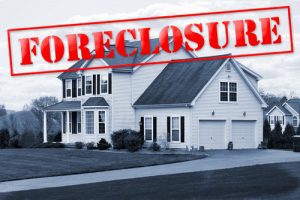The Connection Between Foreclosed Properties and Pests
By Chris Williams on December 27, 2011.
In the last few years, you have no doubt had several homes in your neighborhood that have been abandoned or gone into foreclosure. People rarely consider that there could be a connection between foreclosed homes and pests on their own property. Empty homes scattered throughout a neighborhood can become the focus of pest problems that can overflow the vacant property to infest surrounding homes. The following pests thrive in the conditions offered by a foreclosed property that no one looks after:
 Mosquitoes: Expensive, high-end homes have been especially hard hit by foreclosures, and these homes often come equipped with swimming pools, hot tubs, whirlpools, bird baths, and ornamental ponds. The pools are typically left partially full of water to prevent damage, the whirlpools and tubs are drained but often fill with rainwater, the fish die in the ornamental ponds, and soon mosquitoes are breeding in large numbers in the stagnant water.
Mosquitoes: Expensive, high-end homes have been especially hard hit by foreclosures, and these homes often come equipped with swimming pools, hot tubs, whirlpools, bird baths, and ornamental ponds. The pools are typically left partially full of water to prevent damage, the whirlpools and tubs are drained but often fill with rainwater, the fish die in the ornamental ponds, and soon mosquitoes are breeding in large numbers in the stagnant water.
Ticks: Abandoned homes often become overgrown with weeds, which attract rodents and other small mammals that carry ticks. The area eventually can become a focus of ticks for the surrounding neighborhood as animals pass through.
Rats: An abandoned property in an urban area will deteriorate and may eventually become home to large numbers of rats that use the site to nest and hide during the day and then forage out to surrounding areas to feed. Rat populations can explode in a protected and undisturbed site.
Stinging Insects: Abandoned houses can become home to very large colonies of hornets, yellowjackets, and bees, because they are not noticed and controlled early in the season as they would be in an occupied property. These stinging insects can become serious pests at neighboring properties in the fall.
Other pests that can on occasion build up in abandoned properties and cause pest problems nearby include flies, poison ivy (affecting children and animals playing at the site), mice, snakes, and weeds that can trigger allergies. Mammals such as squirrels, raccoons, and bats that may hesitate to move into the attic of an occupied house, might find an empty house very much to their liking. When a house is no longer heated or air-conditioned, moisture levels can rise, mildew results, and pests that like high humidity (booklice, springtails, fungus beetles) can build up to high levels.
What can you do if there are pest problems stemming from the abandoned property? You can’t just go onto the property to clean it up without risking a law suit for trespassing. That property still belongs to someone. The bank owner or managing real estate company may have posted signs on the property with a phone number and contact. Call them and explain the situation; ask them to clean up the property. Otherwise, contact the proper local authority (health department, animal control, city council, etc.) and advise them of the problem. They should then contact the property owner.
Unfortunately, in some areas it can be difficult to get government agencies to act, and in these cases, you’ll just have to establish a defensive perimeter on your own. Keep your own property free of any weeds and trash that may attract the neighbor’s pests. And then call us. We can set up a perimeter treatment program around your home to help prevent these “foreclosure pests” from moving onto your property.